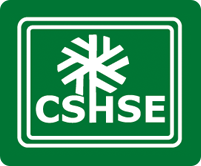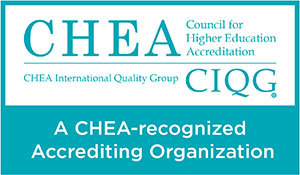Human Services Faculty
The Human Services program has 4 faculty members and 5 adjunct faculty members. The faculty members come from a variety of educational, clinical, and professional backgrounds. The majority of the core curriculum courses consist of lecture with an emphasis on class discussions and experiential learning opportunities. The student to faculty ratio is usually no more than 20 to 1 in face-to-face classes and no more than 20:1 in online courses. Faculty ratings by students are very high for both full-time and part-time faculty. All of the faculty ratings are consistently above average or outstanding, often exceeding a national average. The majority of the full-time faculty are Human Services Board-Certified Practitioners. Information on this certification can be found at www.cce-global.org/HSBCP .
Faculty Background
Cheryl Cooper McGill, MS, HS-BCP
I attended Francis Marion University and received a Bachelor of Science in Psychology and a minor in Sociology in 1986 and later in 1993 I received a Master of Science in Applied Clinical Psychology from FMU as well. Prior to working here, I was employed by Family Therapy Associates as a counselor. I have also worked as a counselor at Greenland Park Psychiatric Center and McLeod Hospital. My interests include: group dynamics; psychotherapeutic techniques and biological psychology. I am a Board-Certified Human Services Practitioner (HS-BCP) and serve on the on the Council for Standards in Human Services Education (CSHSE). I am also certified to teach Mental Health First Aid.
Chris C. Thomas, MS, HS-BCP
I received a Bachelor of Science in Psychology and a minor in Business Administration from Coastal Carolina University in 1994. I completed a Master of Science in Clinical Psychology from Francis Marion University in 1998. I completed a graduate certificate in Applied Behavior Analysis from the University of North Texas in 2008. My interests include: applied behavior analysis, brain & behavior, psychopathology, child and adolescent psychology, and the teaching and development of scientific/critical thinking skills. I am a Board-Certified Human Services Practitioner HS-BCP.
Brantlee Haire, MS, HS-BCP
I received a Bachelor of Science in Psychology and a minor in Sociology from Francis Marion University in 1992. I completed a Master of Science in Clinical Psychology from Francis Marion University in 1995. I am the program director for Human Services. My areas of interest include interpersonal communication, positive psychology, and stress management. I am a Board-Certified Human Services Practitioner (HS-BCP).
Melissa Smith, MS, LPC
I received a Bachelor of Science in Psychology from Francis Marion University and a Master of Science in clinical Psychology from Francis Marion University. I am a Licensed Professional Counselor. Areas of special clinical focus include: substance abuse, children’s services, and cognitive-behavioral treatment of depression and anxiety.
Adjunct Faculty Background
Samantha Dukes, MS, LPC
I received a Bachelor of Science at Francis Marion University in 2016, majoring in Psychology and minoring in Sociology. I also received a Master of Science in Clinical Psychology from Francis Marion University in 2019. I am a licensed professional counselor in the state of South Carolina. I am an adjunct faculty member and I am currently the field placement coordinator/instructor for Human Services.
Karen Garmin, MS
I received a Bachelor of Arts degree (Criminal Justice) from Shaw University. I received a Master of Science degree (Family and Consumer Sciences / Child and Family Studies) from North Carolina Central University. Later, I enrolled and earned my Sociology Graduate Certificate from Appalachian State University. This certificate was a very targeted 18 hours of Sociology graduate work, including a portfolio, that is designed specifically to prepare certificate holders to teach undergraduate Sociology classes at 2- and 4-year institutions of higher learning. Before joining FDTC as an adjunct Sociology Instructor, I was (and remain) an adjunct with Wake Technical Community College where I teach, develop and write curriculum for HRD (Human Resource Development) continuing education classes. For 10 years, I served as the Youth Summit Personal Responsibility Summit, a subcommittee of the Raleigh, MLK Celebration Committee, Co-Chair of the Triangle (Raleigh/Durham) chapter of CHADD (Children and Adults with Attention Deficit Disorder, and an annual fundraiser for my local Ronald McDonald Charity My hobbies include traveling, community volunteerism, and mental health and disability advocacy.
Lewis Holland, MS, LPC
I received a Bachelor of Science in Psychology with a minor in Philosophy and Religious Studies from Francis Marion University in 2016, as well as a Master of Science in Clinical Psychology in 2020. I am a Licensed Professional Counselor in South Carolina, certified in DBT (in the process of certification in EMDR) and work full-time in adult outpatient services at Pee Dee Mental Health. At Pee Dee Mental Health, I work with the general population and patients in the DBT and FRST programs. My specialties are trauma and borderline personality disorder (and similar presentations), depression, anxiety, and anger management. My interests include trauma therapy, BPD, and psychopathy.
Gerald Thomas, MA
I received a Bachelor of Arts in History and Political Science with a minor in Religious Studies from Greensboro College in 2003. I completed a Master of Arts in Sociology from the University of North Carolina at Greensboro in 2008. I retired as the Deputy Director from the North Carolina State Bureau of Investigation in 2021 after a 30-year career in law enforcement. My academic interest includes group dynamics and how perception shapes our realities.
Tai Yancey, MS, LPC
I received a Bachelor of Science in Psychology with a minor in Philosophy at Francis Marion University in 2017. I completed a Master of Science in Clinical Psychology in 2019 and expect to graduate with my Doctorate of Psychology degree at Francis Marion University in 2027. I am a Licensed Professional Counselor at a private practice in Florence, SC and an adjunct instructor here at FDTC. My professional areas of interest include neuroscience, psychopathology, dialectical behavior therapy, diverse populations, and trauma.


